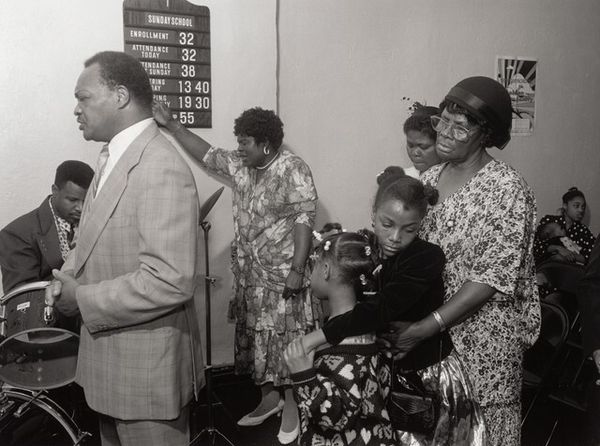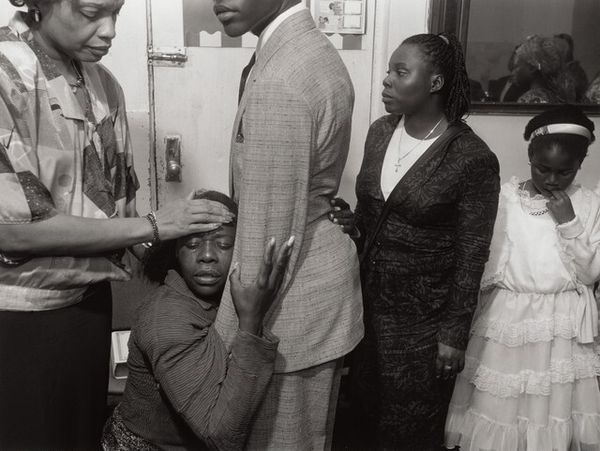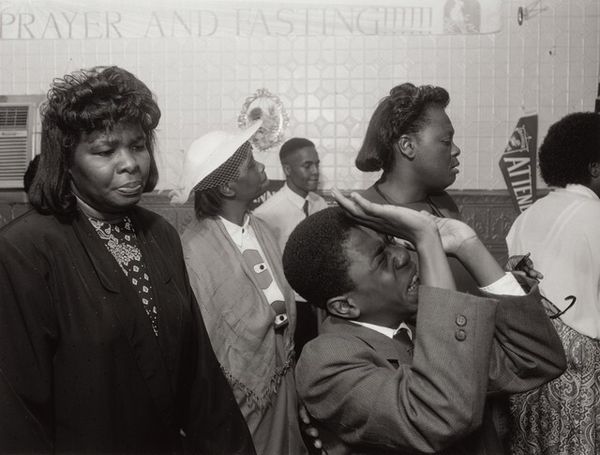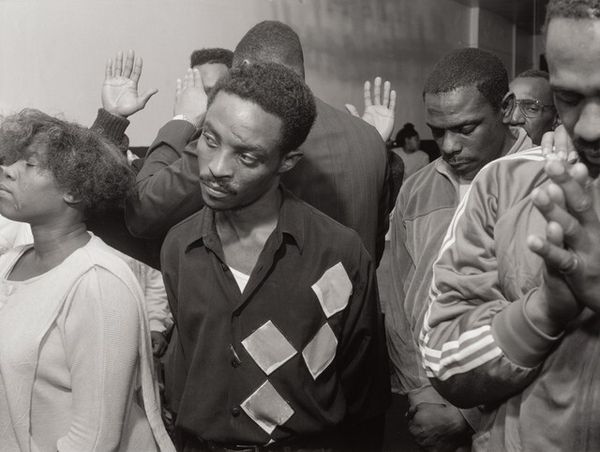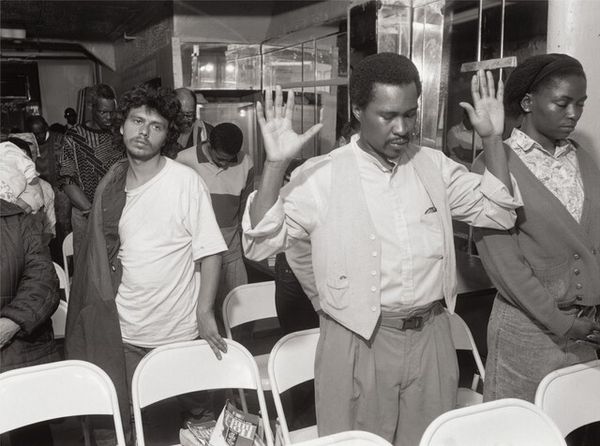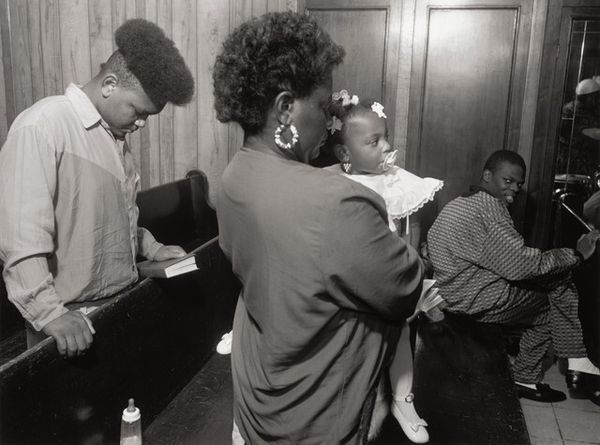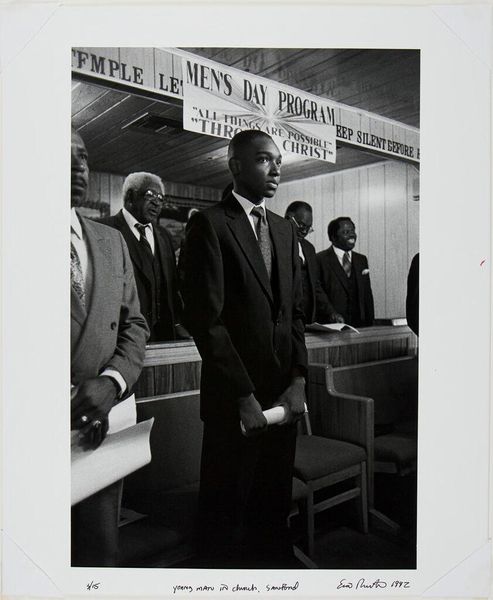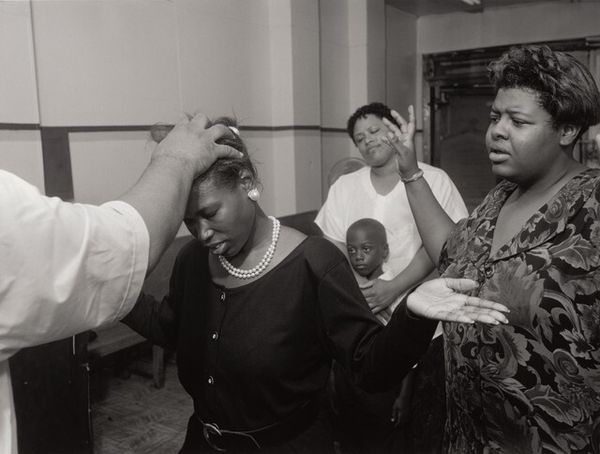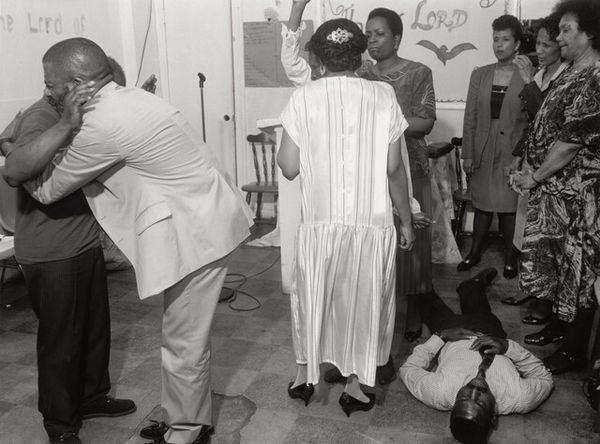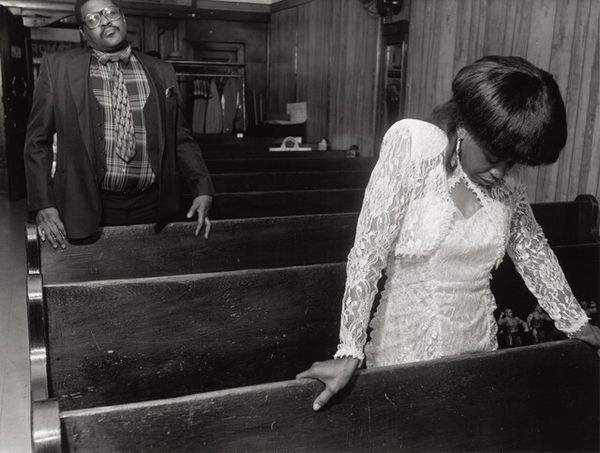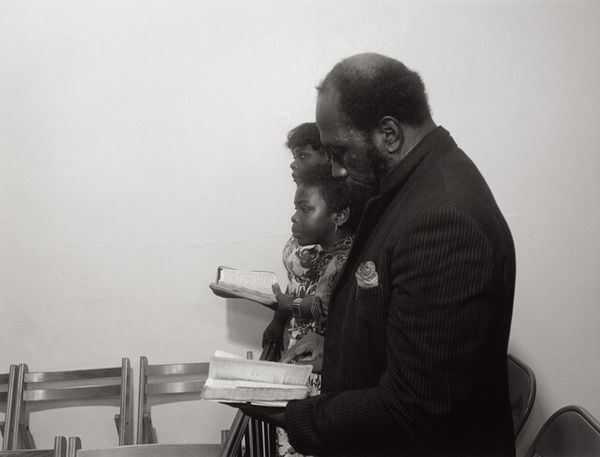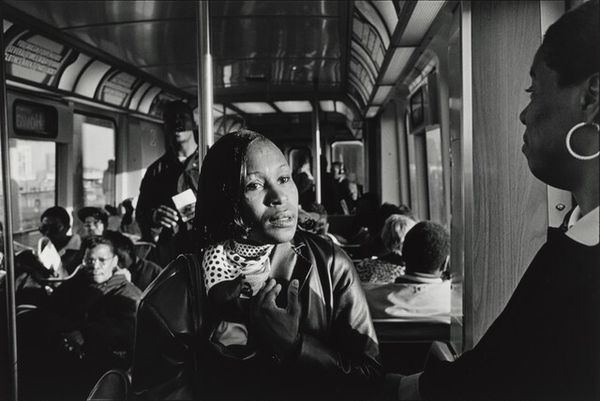
photography, gelatin-silver-print
#
portrait
#
contemporary
#
black and white photography
#
black and white format
#
photography
#
historical photography
#
group-portraits
#
black and white
#
gelatin-silver-print
#
monochrome photography
#
genre-painting
#
realism
Dimensions: image: 32.4 × 24.2 cm (12 3/4 × 9 1/2 in.) sheet: 35.56 × 27.94 cm (14 × 11 in.)
Copyright: National Gallery of Art: CC0 1.0
Editor: Here we have a gelatin-silver print by Thomas Roma, simply titled "Untitled," created in 1992. It's a black and white photograph showing a gathering of people, seemingly in a church or auditorium. There’s a definite sense of quiet contemplation, but also something slightly unsettling in the way some figures seem to be moving or in distress. What do you see in this piece, considering the history it might be reflecting? Curator: What strikes me is the staging. Roma, though working in a contemporary setting, draws on the well-worn tradition of history painting, echoing images of public mourning or civic gatherings. It feels constructed, doesn't it? Like he’s presenting a specific narrative, carefully composing the figures within the frame. Notice how he places the viewer amongst the pews, forcing us to occupy a position within the community depicted. Editor: Yes, the viewer is definitely part of the scene. Almost as if we're witnessing something private in a public space. The expressions are so varied, from sorrow to almost a defiant stance. What do you make of that range of emotions? Curator: I see that range as critical. Consider the socio-political context of 1992. What kinds of community tensions might Roma be responding to or commenting on? How might issues of race, class, or perhaps even local controversies be subtly represented in these varied emotional states, these bodies arranged within the space? Photography in this era served as a powerful form of social documentation, a way to visually archive the nuances of community life often overlooked by mainstream narratives. This may be more than realism. Editor: I never thought about it as social commentary. It seemed more observational. This photo makes you consider what may be happening beyond the image’s frame. Curator: Exactly! Roma encourages this kind of engagement, reminding us that images aren't neutral. They're produced, circulated, and interpreted within complex power dynamics.
Comments
No comments
Be the first to comment and join the conversation on the ultimate creative platform.
